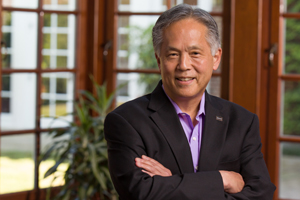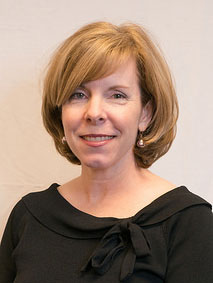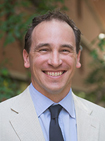Plenary Talk
Transition states, Hilde Mangold, and you
3:00 – 4:00 pm, Engineering Bldg., ENG027 (Lecture Hall 5)
How is a catalyzed chemical reaction a metaphor for the process by which a student is transformed into a scientist? What can we learn about the transition state through the story of Hilde Proescholt Mangold?
David Asai, Ph.D., Howard Hughes Medical Institute
 David Asai is Senior Director of the undergraduate and graduate science education programs at the Howard Hughes Medical Institute. Before moving to HHMI in the autumn of 2008, David was on the faculty for 19 years at Purdue University where he was Head of Biological Sciences, and for 5 years at Harvey Mudd College where he was Stuart Mudd Professor and Chair of Biology. He is an elected member of the Purdue Teaching Academy and was inducted into Purdue’s “Book of Great Teachers.” He was an elected member of the Board of Trustees of the Higher Learning Commission-North Central Association, and is an Honorary Life Member of the National PTA. David’s research focuses on the structure and functional diversity of the molecular motor dynein, especially as it acts in the formation and movement of eukaryotic cilia and flagella. David currently serves on the advisory committees to the NSF Biology Directorate, the Progress through Calculus project of the Mathematical Association of America, the InTeGrate NSF STEP center, Understanding Interventions, and the Minority Affairs Committee of the American Society for Cell Biology.
David Asai is Senior Director of the undergraduate and graduate science education programs at the Howard Hughes Medical Institute. Before moving to HHMI in the autumn of 2008, David was on the faculty for 19 years at Purdue University where he was Head of Biological Sciences, and for 5 years at Harvey Mudd College where he was Stuart Mudd Professor and Chair of Biology. He is an elected member of the Purdue Teaching Academy and was inducted into Purdue’s “Book of Great Teachers.” He was an elected member of the Board of Trustees of the Higher Learning Commission-North Central Association, and is an Honorary Life Member of the National PTA. David’s research focuses on the structure and functional diversity of the molecular motor dynein, especially as it acts in the formation and movement of eukaryotic cilia and flagella. David currently serves on the advisory committees to the NSF Biology Directorate, the Progress through Calculus project of the Mathematical Association of America, the InTeGrate NSF STEP center, Understanding Interventions, and the Minority Affairs Committee of the American Society for Cell Biology.
Workshops
Professional Communication:
|
A very, very short introduction to ethics for scientistsCASTLE, UC 115, University Center, 1st Floor This workshop will provide a basic overview of the two dominant approaches to thinking about ethical problems. You’ll then have a chance to apply these approaches to ethical dilemmas and problems, including some of the sort that might arise specifically for scientists. |
|
Susan Hindle,
|
Simon Stacey, Ph.D.,
|
 Susan Hindle is the Assistant Director, Internships and Employment for the College of Natural and Mathematical Science at UMBC. Susan has 12 years’ experience working with students and alumni in all phases of the career development process. Prior to coming to UMBC in January 2014, Susan worked as a Career Advisor for the both the Clark School of Engineering at the University of Maryland and the Johns Hopkins University. Susan has her undergraduate degree in Elementary Education from the University of Maryland, College Park and her master’s degree in Clinical Counseling from Johns Hopkins University.
Susan Hindle is the Assistant Director, Internships and Employment for the College of Natural and Mathematical Science at UMBC. Susan has 12 years’ experience working with students and alumni in all phases of the career development process. Prior to coming to UMBC in January 2014, Susan worked as a Career Advisor for the both the Clark School of Engineering at the University of Maryland and the Johns Hopkins University. Susan has her undergraduate degree in Elementary Education from the University of Maryland, College Park and her master’s degree in Clinical Counseling from Johns Hopkins University.
 Simon Stacey is a political scientist with training specifically in political theory. He is interested in the issues of transitional justice (how to deal with dictators when their regimes fail), democracy, and social and political violence, and teaches courses on these topics as well as on the history of political theory, ethics and public policy, and American political thought. He is currently working on a book about the contributions that canonical political theorists can make to our thinking about transitional justice and a project on the efficacy of political violence.
Simon Stacey is a political scientist with training specifically in political theory. He is interested in the issues of transitional justice (how to deal with dictators when their regimes fail), democracy, and social and political violence, and teaches courses on these topics as well as on the history of political theory, ethics and public policy, and American political thought. He is currently working on a book about the contributions that canonical political theorists can make to our thinking about transitional justice and a project on the efficacy of political violence.